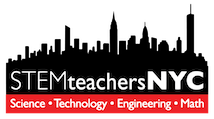This January, the Cracking Chemistry working group focused on assessing student mastery of foundational chemistry concepts, engaging students in hands-on projects, and discussing professional development opportunities for educators. A major discussion point was the challenge of evaluating students’ prior knowledge to ensure they are prepared to move forward with new material. The group explored strategies for assessing student understanding effectively while maintaining forward momentum in the curriculum.
One of the key projects highlighted was a student-led exploration of the elements and the periodic table. Students researched various elements, including their properties, discovery, and uses, while also searching for related articles in The New York Times. The project required students to design a visual representation of a chemical reaction, create a storyboard depicting reactions at the particle level, and analyze periodic trends using graphical data. Educators shared best practices for helping students interpret graphs and identify meaningful correlations between different periodic trends.
Additionally, a member shared insights from a grant-funded trip to the CERN particle accelerator, detailing experiences such as touring the facility, engaging with researchers, and networking for future educational collaborations. As a result of this visit, a CERN researcher will be Zooming with the teacher’s class in the spring to further enrich student learning. The group discussed developing a workshop where educators could identify their professional “bucket list” experiences, such as teaching in another country, comparing global education systems, or participating in hands-on lab research during the summer. The group also discussed upcoming STEMteachersNYC summer opportunities focusing on newly required Regents labs.
The meeting also highlighted assessment strategies aimed at promoting student choice and engagement. Teachers discussed offering students multiple question options with varying difficulty levels, allowing them to reach target point goals through a mix of challenge levels. This approach, similar to adaptive questioning in CK-12 books, ensures that students engage with rigorous content while demonstrating mastery in different ways. The group also emphasized the importance of formative assessments, recommending tools like Newsela’s Formative platform for ongoing student evaluation.
To close the meeting, members shared recommended reading for professional growth, including How We Learn by Benedict Carey and Neuroteach by Glenn Whitman and Ian Kelleher. The next Cracking Chemistry working group meeting is scheduled for Thursday, February 6.
Note: summaries are written with aid of AI text software

